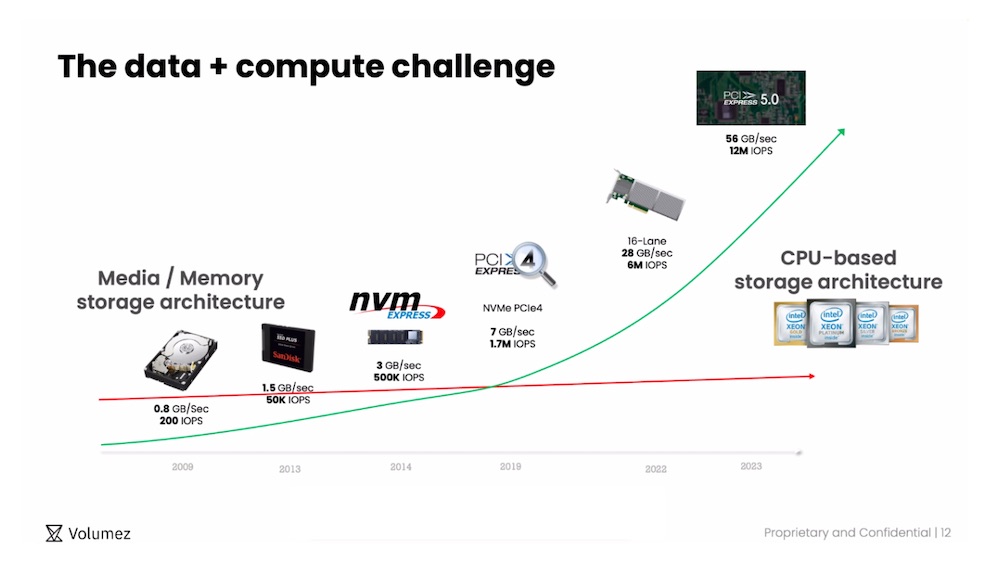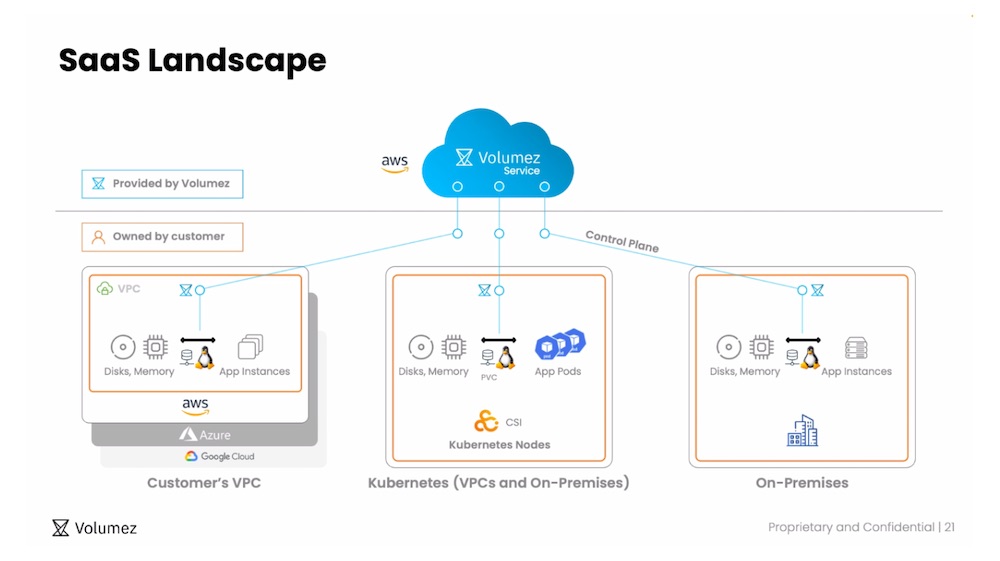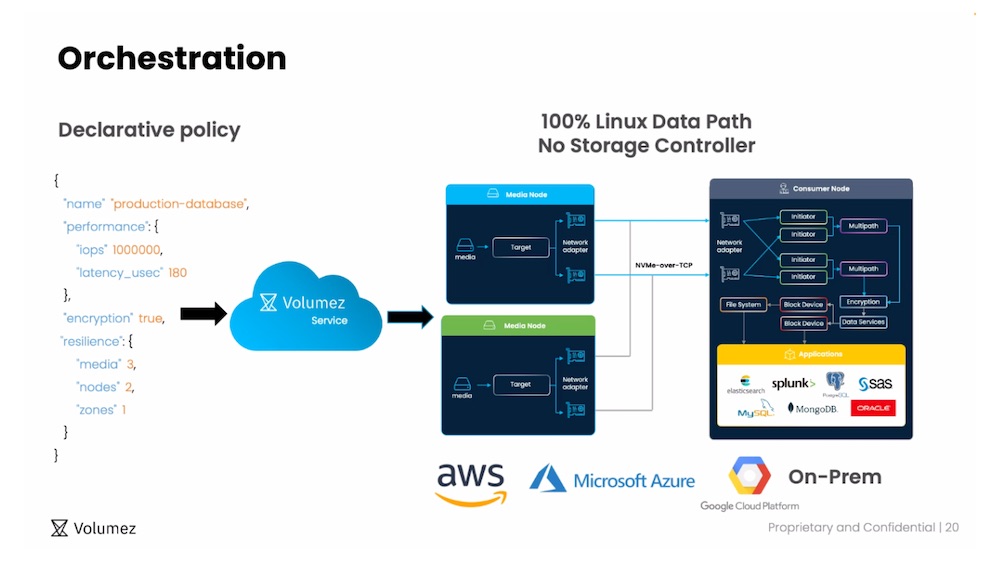Start-Up Volumez Secures $20 Million Series A
In SaaS composable data infrastructure
This is a Press Release edited by StorageNewsletter.com on April 19, 2023 at 2:02 pmVolumez, a cloud infrastructure start-up, completed a $20 million series A financing round led by Koch Disruptive Technologies, with participation from existing investors, Viola Ventures and Pitango.
The company’s controller orchestration software harnesses the power of Linux to quickly execute modern data infrastructure workloads using a declarative interface that makes it easy to deploy a variety of applications in hybrid and multi-cloud environments.
The firm will use the funds to continue to expand its customer base and grow its business operations in the US while maintaining R&D execution in Israel.
“Volumez technology is set to revolutionize the data infrastructure market, allowing, for the first time, hybrid and multi-cloud deployments at scale with improved performance and latency compared to state of the art on-premises solutions with cloud extensions,” said Chase Koch, founder and CEO, Koch Disruptive Technologies. “This investment supports our vision to transform Koch Industries by partnering with exceptional entrepreneur CTO Jonathan Amit and CEO Amir Faintuch to bring Volumez’s ground breaking technology to market.”
“The funding support from Koch Disruptive Technologies validates our investment in Volumez,” said Eyal Niv, partner, Pitango First. “Volumez’s innovative technology breaks the bottlenecks inherent in traditional cloud architecture and transforms data services in the modern cloud. We welcome the partnership with Koch Disruptive Technologies, and are excited to be working with Amir Faintuch and his team in delivering the solution to customers.”
Comments
The same week of the KubeCon conference in Amsterdam,The Netherlands, Volumez announced his new series A round for a total of $32 million since the company inception.
Founded in 2020 in Israel by Jonathan Amit, previously CTO at IBM and Storwize, the company chose to unveil at the same time new executives with a few known names like Amir Faintuch joining as the new CEO, who was more recently at GlobalFoundries, Nir Rigai as VP engineering coming from IBM and Storwize as well as Efri Nattel-Shay as VP products coming from Dell, EMC and Qumranet. With all this brilliant team, the firm is ready to shake some established positions in the storage software market segment.
Storage software is a vast domain. What the team develops is related to block SDS addressing the growing performance gap between CPU and storage. It was not the case a few years ago but clearly NVMe has changed market rules. The image below illustrates that gap with PCIe Gen 6 in the pipe, with players like Pliops addressing same challenges with a different approach, CXL announced with active companies like UnifabriX… so clearly a good list of companies understand the pain and also, of course, the business opportunity.
Click to enlarge
Volumez is playing in the block SDS field but to be more precise, as the company stated, they deliver a composable data infrastructure. The main idea is to decouple the control plane from the data plane, at scale, for on-premises and cloud-based workloads and configurations. The solution is already integrated with Kubernetes and we anticipate that Volumez will be a the next KubeCon in Chicago, IL, in November.
Click to enlarge
Leveraging technologies elements such as NVMe/TCP, Volumez offers a new model with a full SaaS-based orchestrator running on AWS connected to real datastores running on-premises or also in the cloud. Everything, except I/Os, is controlled by the cloud engine, the volume description, profile… it is then connected to Linux instances with a small software piece of Volumez in order to understand volume layout… If NVMe/TCP is not available for any reasons, the connection is moved to iSCSI.
Click to enlarge
In terms of data services, the solution already provides several of them and plans to add more in the next few quarters. As nothing is running on the storage server or in the network, these data services operate as optimized lite-weight functions on application nodes.
This model offers real flexibility and easy scalability with a pure software model, giving some sort of ubiquity with a decoupled control plane. We'll see how the market will adopt such approach but it fits perfectly in the current agile IT infrastructure world especially when Kubernetes is in the loop.
Now as usual the execution will be key and the right go-to-market model has to be put in place with some efficiency.

















 Subscribe to our free daily newsletter
Subscribe to our free daily newsletter


